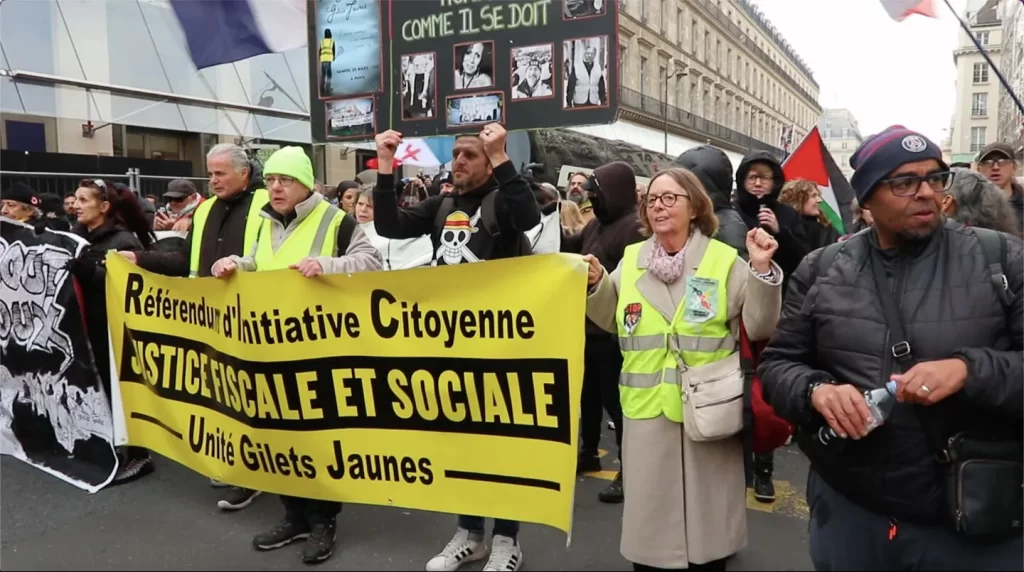Protests erupted once again in Paris as part of the Yellow Vests Movement, with demonstrators chanting “Macron resign!” while marching through the city streets. The movement, which first began in 2018, made a comeback to mark its sixth anniversary.
A Movement Born Out of Fuel Price Hikes
The Yellow Vests Movement, initially sparked on November 17, 2018, by a fuel price hike affecting rural communities, has since evolved into a nationwide protest against economic difficulties and government policies. Although participation in this year’s Paris protest seemed lower than in previous years, hundreds of protesters gathered near the iconic Louvre Museum to voice their grievances.

Carrying banners with messages like “We always stand tall, we never kneel,” “Citizens’ Initiative Referendum,” and “Union of Yellow Vests,” demonstrators walked towards Pigalle. Chants of “Macron resign!” and “Yellow Vests are in the squares” echoed throughout the march.
- Literature & Thought Article: Banality of Banalness
Protesters Demand Change Amid Dissatisfaction
During the protest, a Yellow Vest demonstrator expressed frustration with the movement’s lack of tangible outcomes. “This method of protesting has run its course; we need to shift to something different. We’ve seen that what we’ve done so far hasn’t worked. When we started, diesel was €1.30. Now, it’s around €1.68. Clearly, nothing has changed,” the demonstrator remarked.
The Yellow Vests Movement: A Background
The Yellow Vests Movement began as a grassroots response to rising fuel prices and worsening economic conditions in France. Over the years, the protests, typically held every Saturday, have grown into a larger critique of President Emmanuel Macron’s policies.
The demonstrations have often escalated into violent clashes between police and protesters, leading to hundreds of injuries, arrests, and even permanent disabilities for some participants. Businesses, restaurants, and shops have been looted and damaged, leaving lasting scars on France’s urban centers.
Despite the challenges, the movement remains a symbol of public dissent against perceived government inaction and economic injustice.
- Recomended Article: A New Global Order Theory: What if Russians convert into Islam?













